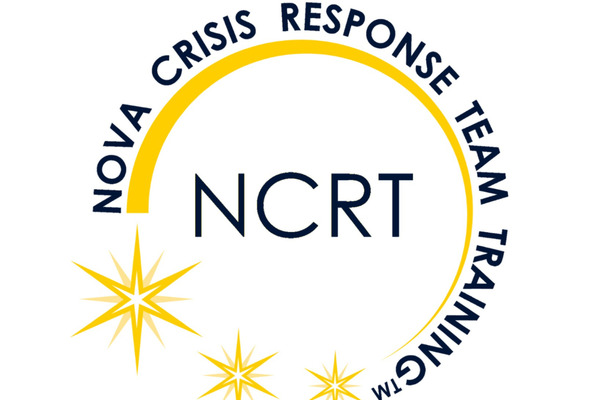
The NOVA Basic Crisis Response Team Training is a 24-hour training pre-approved by the National Advocate Credentialing Program (NACP® )& D-SAACP. The course is designed to provide individuals with a comprehensive overview of NOVA’s Crisis Intervention Model. This CRT Basic training will consist of 18 hours of Instructor Led Training (Class) and 6 hours of Self-Paced Learning (Homework). All Orientations and Classes will be held on Zoom. Wednesday May 28, 2025. = one-hour Mandatory Orientation session. You may choose from either 11:00-12:00 pm EST or 3:00-4:00 pm EST. Wednesdays in June (4, 11, 18, and 25) = live classes from 11:00-4:00pm ET (including breaks). The homework assignments and additional resources can be found on this platform. There are 4 required assignments and a required end of course evaluation. Additional resources are included as optional learning experiences. To earn a certificate of completion, students must attend ALL live class days, submit all required homework by the deadline, and complete the end of class survey. Registration: NOVA Members - $475 Non-Members - $525 Registration will close on Wednesday May 21, 2025 or when capacity is reached Cancellation/Refund Policy: A full refund minus $65 processing fee is available through May 21, 2025. After this date no refunds will be available. For more information or assistance, please email CRT@trynova.org Read more

The NOVA Basic Crisis Response Team Training is a 24-hour training pre-approved by the National Advocate Credentialing Program (NACP)® & D-SAACP. The course is designed to provide individuals with a comprehensive overview of NOVA’s Crisis Intervention Model. This CRT Basic training will consist of three days of in-person instruction. To earn a certificate of completion, students must attend ALL live class days and complete the end of class survey. Once you register for this course you will have the opportunity to select from the upcoming sessions you wish to attend. 1) June 16-18, 2025 8:00 am - 5:00 pm Riverside DA Office Riverside, CA 92501 Specific Address provided upon registration Registration: NOVA Members - $650 Non-Members - $650 Cancellation/Refund Policy: A full refund minus $65 processing fee is available if cancellation is made at least 24 hours prior to the first day of the session. After this date no refunds will be available. For more information on the course or for assistance registering, please email CRT@trynova.org Read more

The NOVA Advanced Crisis Response Team Training is a 24-hour training pre-approved by the National Advocate Credentialing Program (NACP)® & D-SAACP. The course is designed to build knowledge around implementation of NOVA’s Crisis Intervention Model. This training will consist of three days of in-person instruction. To earn a certificate of completion, students must attend ALL live class days and complete the end of class survey. With funding through SAMHSA’s Bipartisan Safer Communities Act Grant, OhioMHAS is planning a series of regional NOVA Crisis Response Team Trainings for 2025. The free trainings will take place between February and August 2025, in several counties around the state. These trainings are geared toward mental health professionals, victim advocates, law enforcement personnel, and others who confront human crisis in their work. ADVANCED 8:00 AM -5:00 PM each day June 10-12, 2025 = Cincinnati, Ohio June 24-26, 2025 = Columbus, Ohio July 15-17, 2025 = Cleveland, Ohio July 29-31, 2025 = Athens, Ohio August 12-14, 2025 = Archbold, Ohio August 26-28, 2025 = Cleveland, Ohio Participants who complete the three-day training will receive a NOVA Certificate and will be offered the opportunity to sign up for the Ohio Crisis Response Team (OCRT), a highly qualified, all-volunteer mobilization group that may be deployed to respond to traumatic events in Ohio and other states. Registration: NOVA Members - $475 Non-Members - $525 Ohio Residents - Free with coupon code provided by OHMAS Cancellation/Refund Policy: A full refund minus $65 processing fee is available if cancellation is made at least 24 hours prior to the first day of the session. After this date no refunds will be available. For information on coupon codes or about OHMAS, please email Cynthia.Wohlford-Lotas@mha.ohio.gov For more information on the course or for assistance registering, please email CRT@trynova.org Read more
Shopping Cart
Your cart is empty
